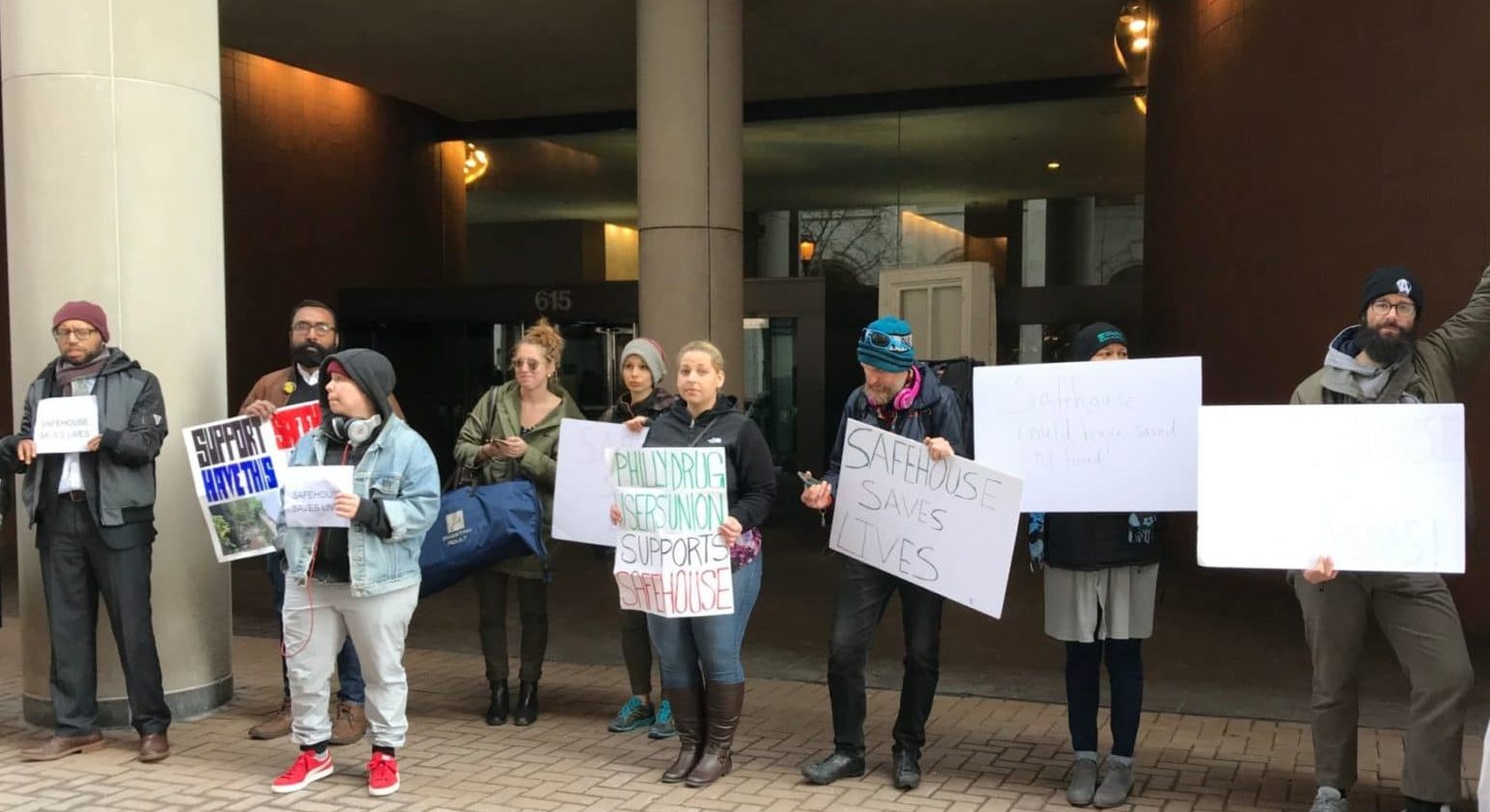On September 17, a group of 80 criminal justice leaders from across the country united in support of the ongoing federal court case brought by Safehouse Philly, formally urging the Supreme Court to reconsider the ban on safe consumption sites (SCS).
The coalition includes current and former elected district attorneys, state attorneys general and President Biden’s US Massachusetts Attorney nominee, Rachael Rollins. They filed an amicus brief requesting that the Supreme Court hear Safehouse’s case. An amicus brief is a document from a group that is not party to a lawsuit, but that shares relevant information with the court for consideration.
“We wouldn’t criminalize a parent who allows a child to use their house to safely consume drugs so they’re under a watchful eye,” Miriam Krinsky, director of Fair and Just Prosecution, told Filter. FJP organized the coalition of prosecutors and law enforcement officials behind the brief. “We shouldn’t criminalize a nonprofit … that is trying to do what 11 countries in the world have done.”
Safehouse, a Philadelphia-based nonprofit, has been at the forefront of the US battle to open authorized SCS for years. In February 2019, Philadelphia’s then-US Attorney William McSwain—appointed by President Trump—sued to block Safehouse from opening. McSwain argued that Safehouse would violate the federal “crack house” statute, which prohibits “maintaining drug-involved premises.” That law was written in 1986, by Delaware Senator Joe Biden.
Safehouse first won the case in February 2020, when a US District Court ruled in its favor. The court found because Safehouse’s intent is to save lives—not sell state-banned drugs—its work is legal. But Safehouse was forced to pause its plan in the face of local anti-drug backlash. Then, in January 2021, an appeals court ruled against it—once again invoking the “crack house” statute, writing that the SCS would have “significant purpose of drug activity.”
“The prior Administration’s attempt to block a public health response to the overdose crisis is perplexing.”
The case remains in litigation. In late August, Safehouse requested that the January ruling to be reviewed. The newly filed amicus brief was written in support of such a review.
The brief argues that the federal government should not criminalize an evidence-based, lifesaving intervention like SCS, especially with overdose at an historic high. More than 100 authorized sites operate around the world, and none have ever had someone die of an overdose on their watch.
In July, Rhode Island made history by becoming the first state to ever authorize an SCS pilot. This victory has shone a light on cities across the country—including in California, New York, Massachusetts and New Mexico—where advocates are fighting to open SCS or have introduced legislation to do so.
“Given the stark evidence that criminalizing drug use only increases its harms, the prior Administration’s attempt to extend the Controlled Substances Act to block a public health response to the overdose crisis is perplexing,” the brief read. It argues that it would be inappropriate to use federal drug law to criminalize other emergency health measures like syringe service programs or naloxone distribution.
The so-called crack house statute “was never intended to target public health facilities,” the brief continued.
President Biden’s Department of Justice can choose to break from Trump’s position opposing Safehouse, and signal to the Supreme and District Courts that it won’t pursue the case.
“The hope is with many states looking to move forward … they will provide a green light not simply for Safehouse,” Krinsky said, “but also other states and jurisdictions to move forward and not be subject to criminal jurisdiction if they choose to do so.”
Photograph courtesy of Christopher Moraff





Show Comments